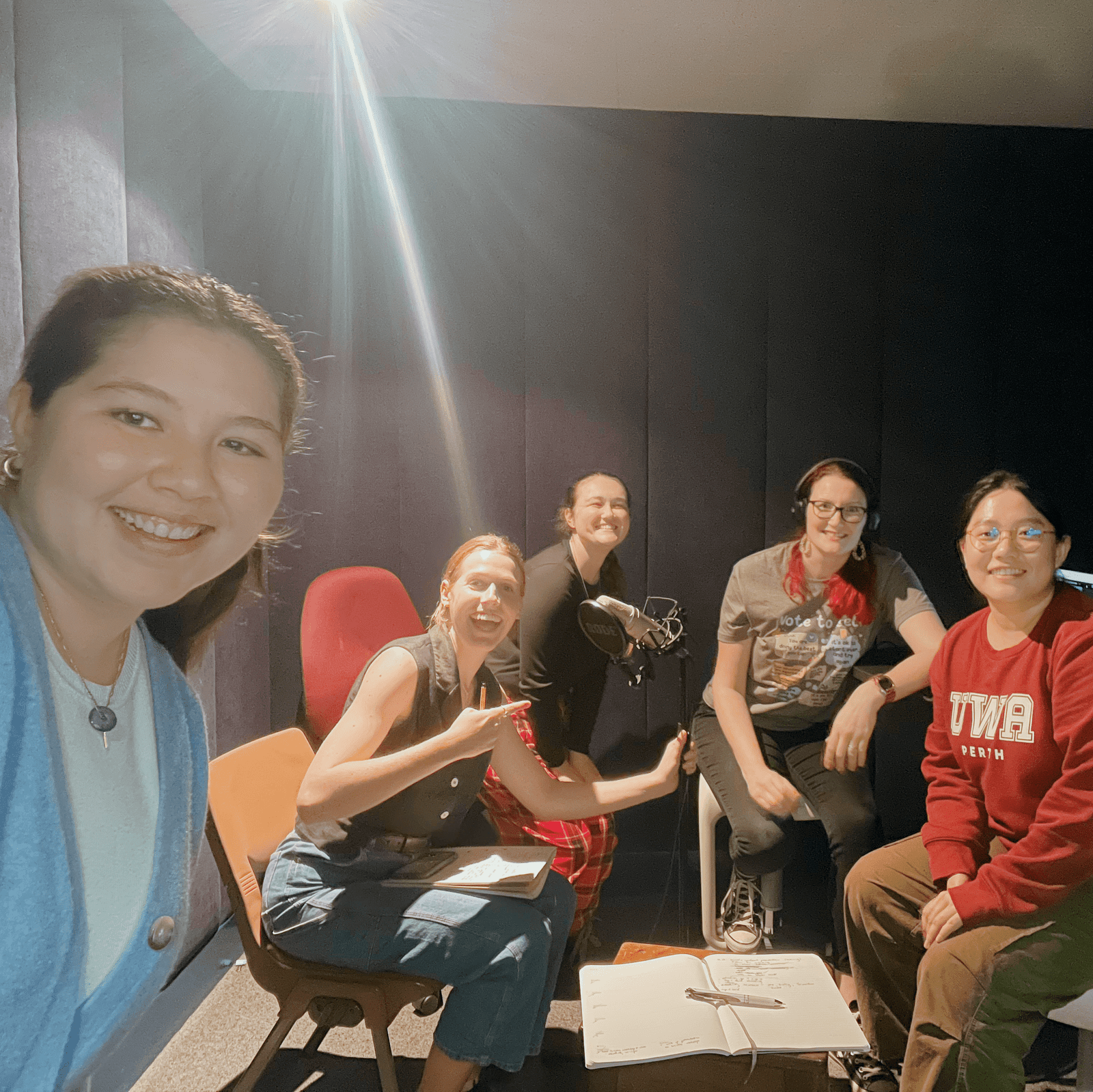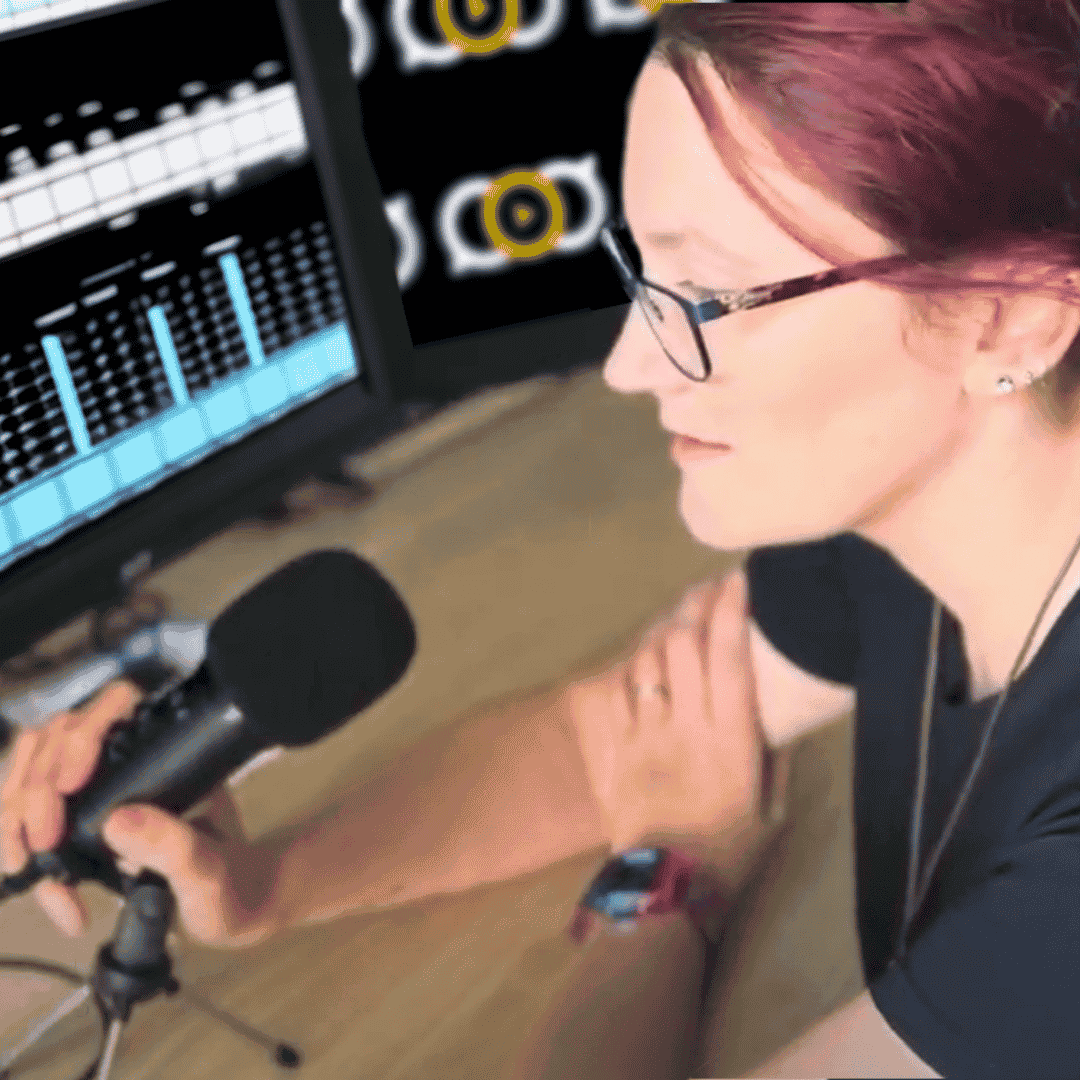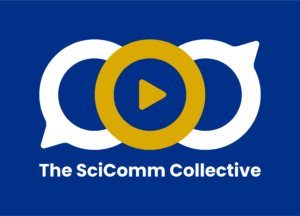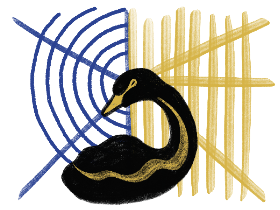The Collective: Kelly Hopkinson, Holly Dear, Kate Holmes, Emma Gill
Time: 25 min
“The public is diagnosed as ignorant of and lacking interest in science. The main symptoms of the condition are aversion, anxiety and mistrust. The prescribed cure: Science pills.”
–Marko Ahteensuu (2011)
Episode Credits
Hosts & Research: Kelly Hopkinson, Holly Dear, Kate Holmes
Producer & Editor: Kelly Hopkinson
Show notes: Emma Gill
Show Notes
“It’s a privilege to have an audience that will want to listen to you.” – Kate Holmes
In this episode of The SciComm Collective, UWA Master of Science Communication students Kate, Kelly, and Holly discuss the ‘Deficit Model’ of science communication. Join us (and our spooky room!) as we explore the Deficit Model, why it presents challenges, and how it assumes a one-way flow of information from scientists to the public.
In this episode:
Tune in to learn why the Deficit Model may still have a place in society, but why it shouldn’t be the only approach to science communication. Whether you’re a scientist, a science communicator, or someone interested in how science is shared, we hope you find our discussion on improving communication practices thought-provoking!
It wouldn’t be a student roundtable without personal insights from our experiences. Thanks to Dr Heather Bray and our studies in Science Communication at The University of Western Australia.
Episode links
“Science pills” quote – Marko Ahteensuu (2011) Assumptions of the Deficit Model Type of Thinking: Ignorance, Attitudes, and Science Communication in the Debate on Genetic Engineering in Agriculture
Keywords
Science Communication, Deficit Model, Public Engagement, Dialogue, Participatory Methods, Indigenous Knowledge, Lived Experience, Science Education, Audience Engagement, Social Constructivism, Epistemologies, Knowledge Sharing, Science Culture, UWA




We love hearing everyone’s stories of how they got into science communication. What about you? What brought you here? Feel free to share in the comments!


All opinions on this website are representative of individuals and are not representative of The University of Western Australia. The University of Western Australia is not liable for content herein.
3 Comments
[…] Episode 4: Student Roundtable – The Deficit Model […]
[…] Check out Episode 4 for more on the Deficit Model […]
[…] Episode 4: Student Roundtable – The Deficit Model – thescicommcollective.com8 October 2024 at 6:08 am […]